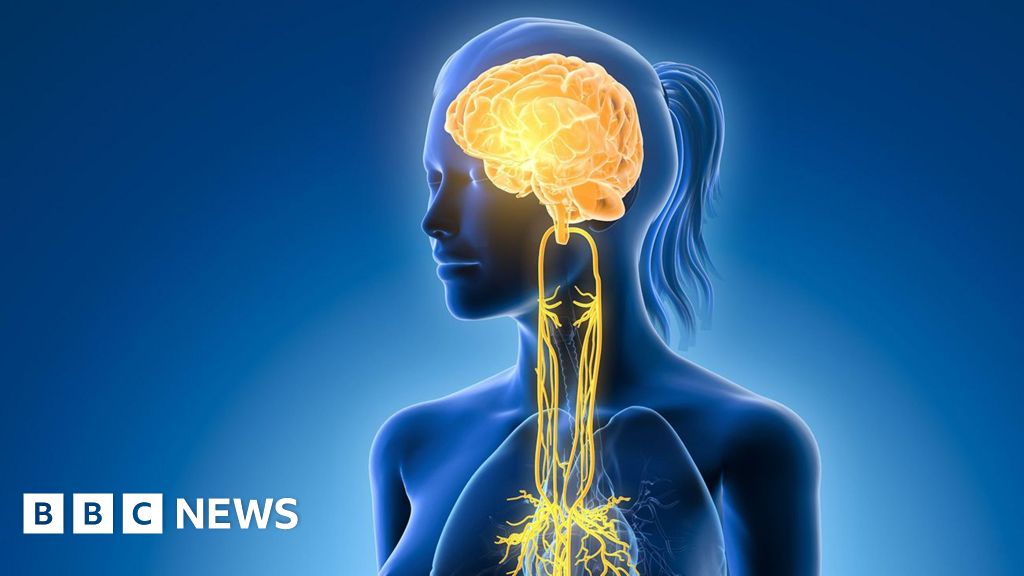
"It's the body's superhighway that carries information from your brain to your major organs. You might not have a clue it exists - let alone that you might need to train it. But a quick scroll through my social media and there's a whole array of tips on the vagus nerve - how to heal it, stimulate it, even reset it - all to apparently reduce stress and anxiety levels."
"Poking your ear with what looks like a rubber toothbrush, moving your eyes from side to side, tapping your body or gargling water while wearing a weighted vest - these are just some of the techniques being recommended to train that nerve and improve your wellbeing. With our stress levels sky-high, and burnout on the rise among under-35s, it's no wonder many of the posts on socials have gone viral with millions of hits. Some of these methods might seem a bit absurd."
"I decided to find out by coming to small candle-lit studio in Stockport town centre - where I find myself in a small group, humming loudly. Humming, I am told, can help stimulate our vagus nerve and slow down our heart rate. And I do start to feel a bit more relaxed. I can feel the low hum vibrating in my body and my brain seems a bit less busy."
The vagus nerve transmits signals from the brain to major organs and is targeted by many popular wellbeing techniques. Social media shares tips claiming to heal, stimulate or reset the nerve to reduce stress and anxiety. Suggested methods include ear stimulation, eye movements, body tapping, gargling and weighted vests. Rising stress and burnout, especially among under-35s, have driven viral interest. Some practitioners incorporate humming, deep breathing, rocking, eye movements and tapping in somatics or yoga sessions and report calming effects. The approach is presented as a process rather than a quick fix. Scientists caution that the idea oversimplifies complex internal systems, while others find practical benefits.
Read at www.bbc.com
Unable to calculate read time
Collection
[
|
...
]